Spending a bunch of money into sprucing up a property might sound like a good idea, but unless you're getting a solid return on that investment, you might as well be tossing your cash into a wishing well.
Strategic home improvements can work wonders when it comes to boosting a property's value. It's not just about slapping on a fresh coat of paint and calling it a day. You've got to be smart about where you put your money.
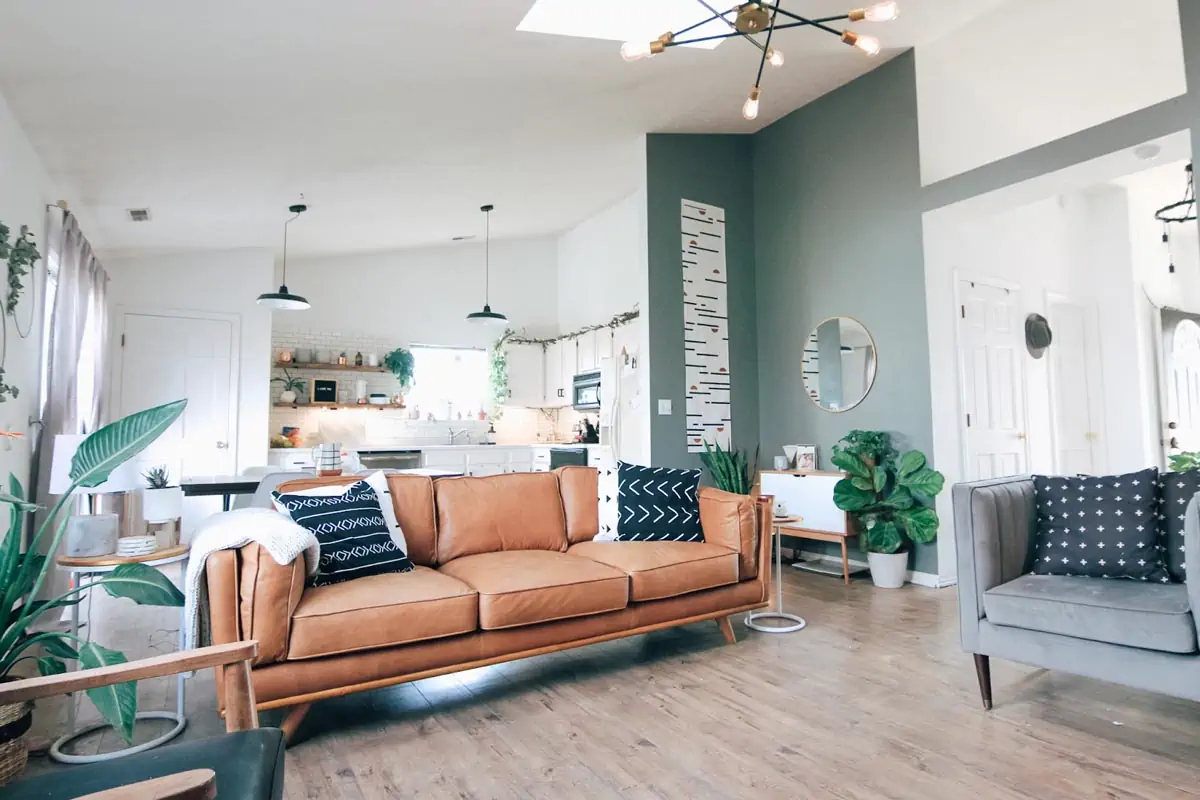 Photo courtesy of karaeads via Unsplash
Photo courtesy of karaeads via Unsplash
Take kitchens and bathrooms, for example. These areas are like the holy grail of renovation projects. Upgrading them with modern fixtures, sleek countertops, and top-notch appliances can seriously up the ante on your property's value.
People spend a lot of time in these spaces, so making them look and feel amazing can make a huge difference. That's why it's important to do your homework, crunch the numbers, and focus on the areas that give you the biggest ROI. So if you’re looking for house renovation ideas acclimated to the Philippines, then you’re in the right place with DMCI Leasing.
The basics of renovation ROI
When you sink money into a property—whether it's for renovations, maintenance, or buying outright—you want to ensure you're getting a solid return on investment. After all, nobody likes to see their hard-earned cash go down the drain. Therefore, ROI in real estate is all about calculating to see how much your property is appreciating over time compared to the money you've put into it.
Here are general factors influencing the ROI of property renovations:
1. Location
This age-old adage still holds true: the location of a property greatly impacts its value. Renovations in prime locations like proximity to amenities, schools, public transportation, employment centers, and desirable neighborhoods tend to yield higher returns due to increased demand and desirability.
 Photo courtesy of _extramile via Unsplash
Photo courtesy of _extramile via Unsplash
2. Market trends and demand
Keeping an eye on market trends and understanding current demand patterns is key. Home renovations that align with popular styles, amenities, and lifestyle preferences in the area are more likely to attract buyers or renters and command higher prices.
3. Quality of renovations
Cutting corners on renovations can backfire. High-quality materials and workmanship enhance the property's appeal as well as contribute to its long-term durability, minimizing maintenance costs and maximizing ROI over time.
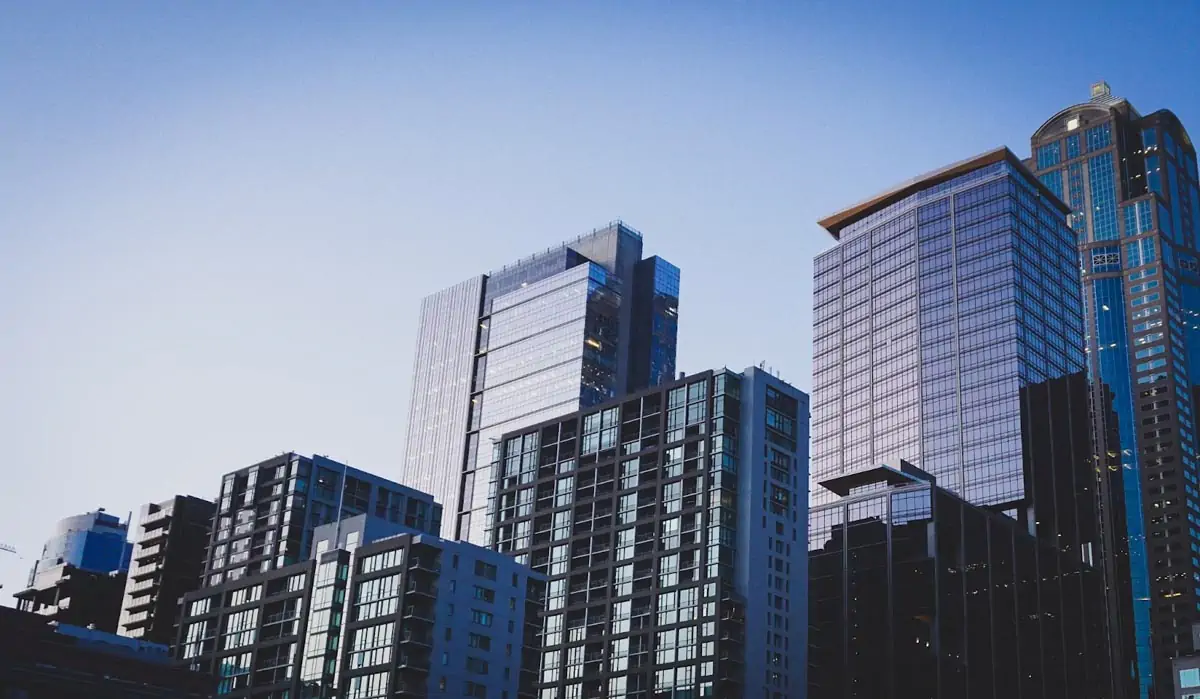 Photo courtesy of jdent via Unsplash
Photo courtesy of jdent via Unsplash
4. Condo rules and regulations
For properties within condominiums, adherence to the rules and regulations set by the association is essential. Renovations must comply with these guidelines to avoid potential fines or legal issues, ensuring a smooth process and preserving the property's value.
5. Space optimization
Efficient use of space is increasingly valued by modern buyers and renters, especially in urban areas where square footage comes at a premium. Renovations that maximize usable space, such as open floor plans or multifunctional areas, can significantly enhance a property's appeal and ROI.
 Photo courtesy of aviosly via Unsplash
Photo courtesy of aviosly via Unsplash
6. Amenities and upgrades
Today's buyers and renters prioritize convenience and comfort. Renovations that add desirable amenities such as smart home technology, energy-efficient appliances, or luxury features like spa-like bathrooms or gourmet kitchens can command higher rents or selling prices.
7. Maintenance and upkeep
Well-maintained properties require fewer immediate repairs and attract more discerning buyers or tenants. Renovations aimed at improving structural integrity, addressing any maintenance issues, and enhancing curb appeal contribute to a property's long-term value and ROI.
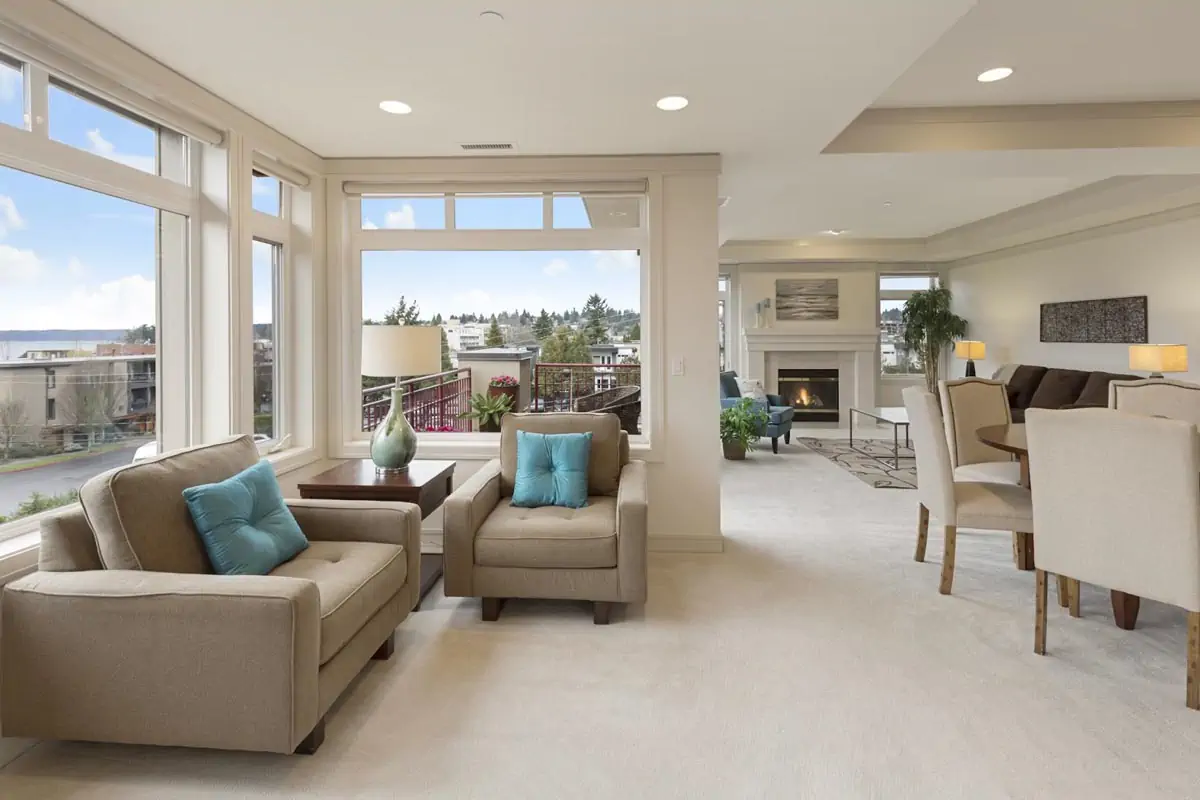 Photo courtesy of fromitaly via Unsplash
Photo courtesy of fromitaly via Unsplash
8. Security and safety
With safety being a top concern for homeowners and renters alike, investments in security features such as alarm systems, secure entryways, or reinforced windows and doors can boost a property's appeal and justify higher asking prices or rental rates.
9. Energy efficiency
In an era of increasing environmental awareness, energy-efficient upgrades hold significant appeal for modern buyers and renters. Renovations such as installing solar panels, energy-efficient windows, insulation improvements, and upgrading HVAC systems not only reduce utility costs but also enhance the property's sustainability credentials, thereby increasing its attractiveness and long-term value.
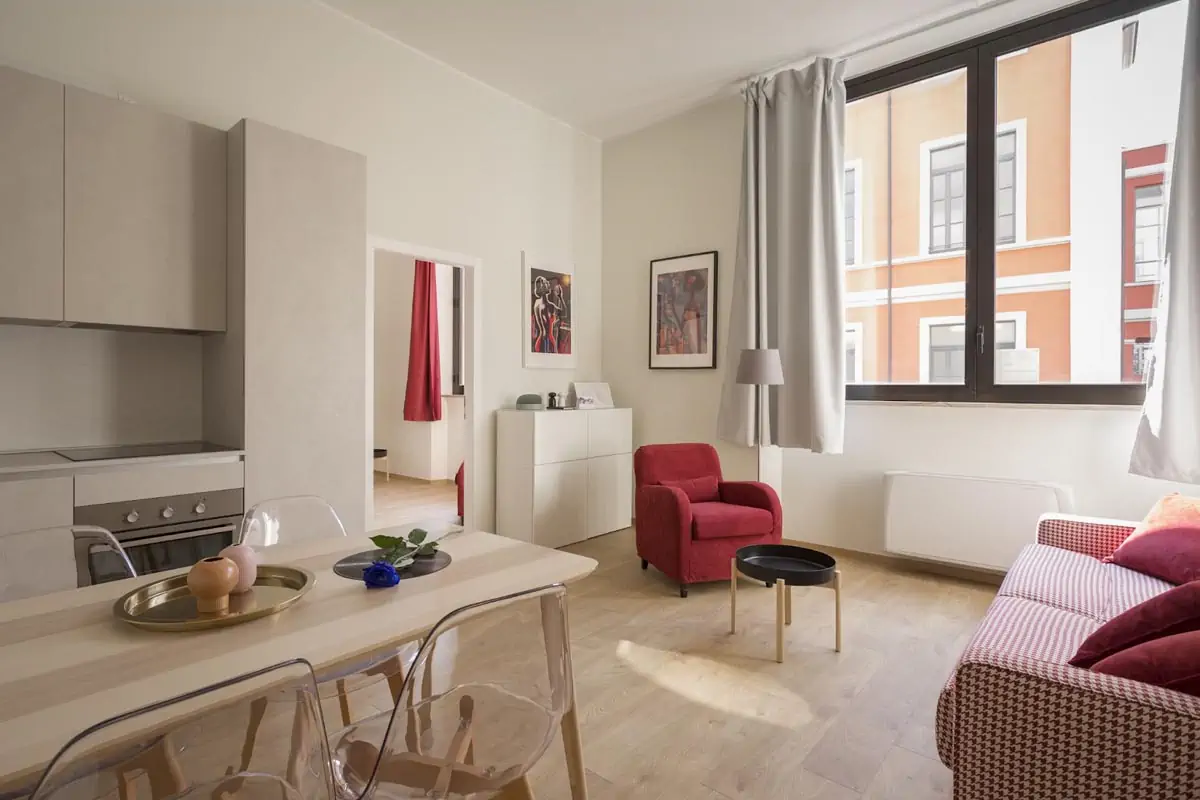 Photo courtesy of deborah_cortelazzi via Unsplash
Photo courtesy of deborah_cortelazzi via Unsplash
10. Outdoor spaces
With the lines blurring between indoor and outdoor living, well-designed outdoor spaces have become a major selling point. Renovations that enhance outdoor areas such as patios, decks, gardens, or rooftop terraces can significantly increase a property's appeal and provide additional living and entertaining space, thereby maximizing ROI.
 Photo courtesy of sugarcoatit via Unsplash
Photo courtesy of sugarcoatit via Unsplash
You can't just focus on one factor and expect to maximize your ROI. Take location, for example. It's crucial, but even the perfect spot won't guarantee success if you're ignoring other aspects like property condition or financing. You might attract tenants initially, but they won't stick around if the place is a dump or if you're constantly raising rents to cover your high-interest loans.
On the flip side, you might have a beautifully maintained property and great financing terms, but if it's in a lousy location with no demand, you'll struggle to find tenants willing to pay the rent you need to make a profit. Therefore, don’t just focus on one factor, look into all of them, so you can boost your ROI.
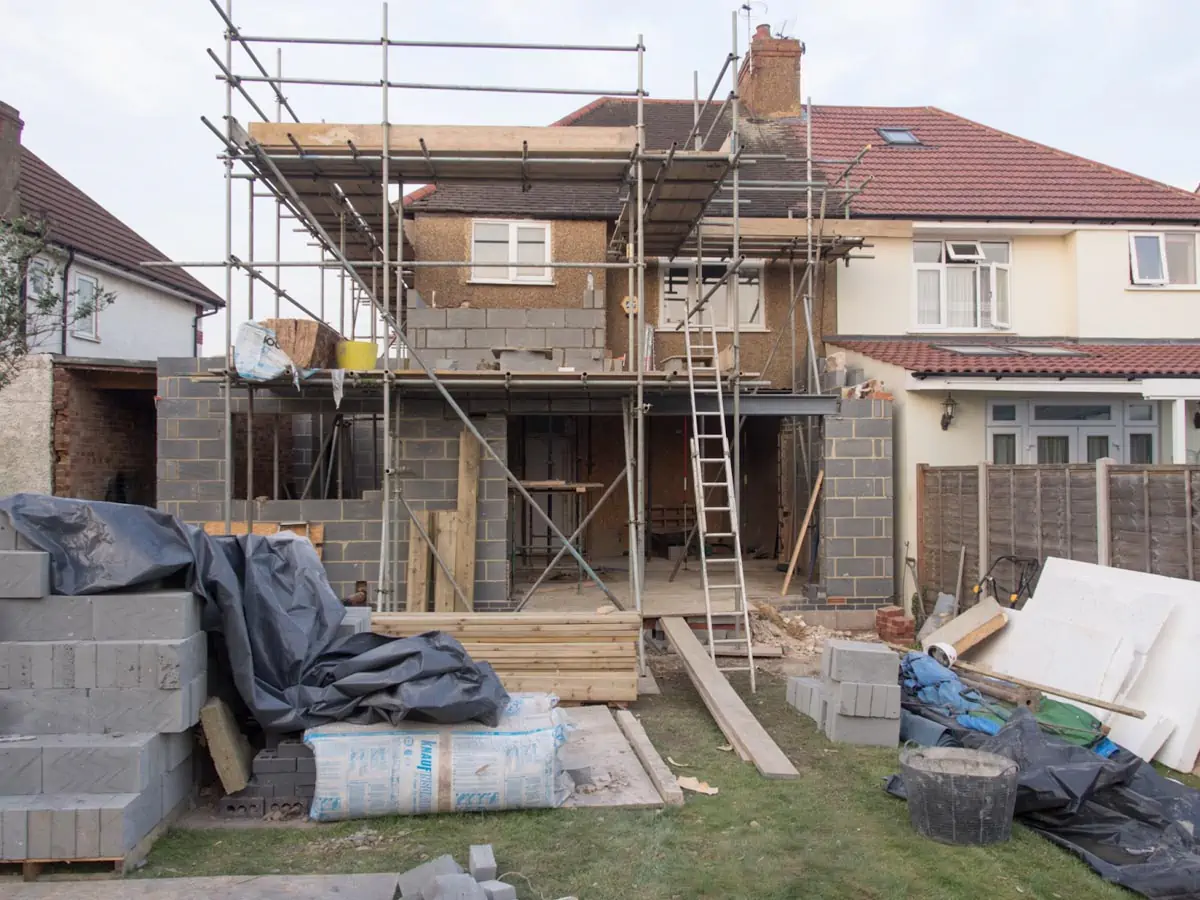 Photo courtesy of spacejoy via Unsplash
Photo courtesy of spacejoy via Unsplash
Key cost-effective upgrades
When it comes to upgrades for your property, some changes pack a bigger punch in terms of ROI. Sure, you've got to consider all factors, but there are certain upgrades you should prioritize if you're looking to maximize your investment. Here's a quick rundown comparing minor cosmetic changes versus major structural renovations:
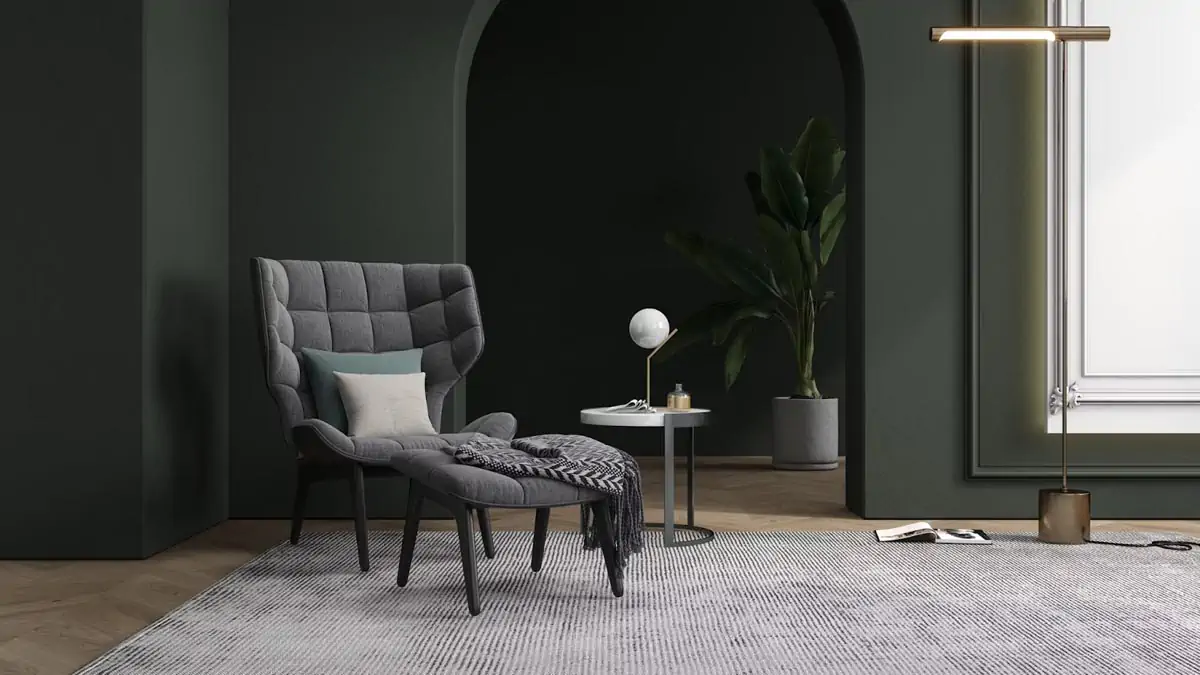 Photo courtesy of coohom via Unsplash
Photo courtesy of coohom via Unsplash
- Minor cosmetic changes -Simple, affordable upgrades that can freshen up your property's look and appeal to potential tenants or buyers. Things like a fresh coat of paint, updated fixtures, or spruced-up landscaping can make a big difference without spending too much. They're great for a quick refresh and can boost your property's curb appeal, making it more attractive to renters or buyers.
- Major structural renovations - These are the heavy lifters—the big-ticket upgrades that can significantly increase your property's value but often come with a higher price tag and more time investment. Think kitchen remodels, bathroom overhauls, or adding extra square footage. While they may require more upfront investment and disruption, major structural renovations can yield substantial returns by modernizing your property and enhancing its functionality.
To put it simply:
| Minor cosmetic changes | Major structural renovations |
| Fresh coat of paint | Kitchen remodel |
| Updated fixtures | Bathroom overhaul |
| New flooring | Adding a room or expanding space |
| Landscaping improvements | Roof replacement |
| Upgraded appliances | Foundation repair |
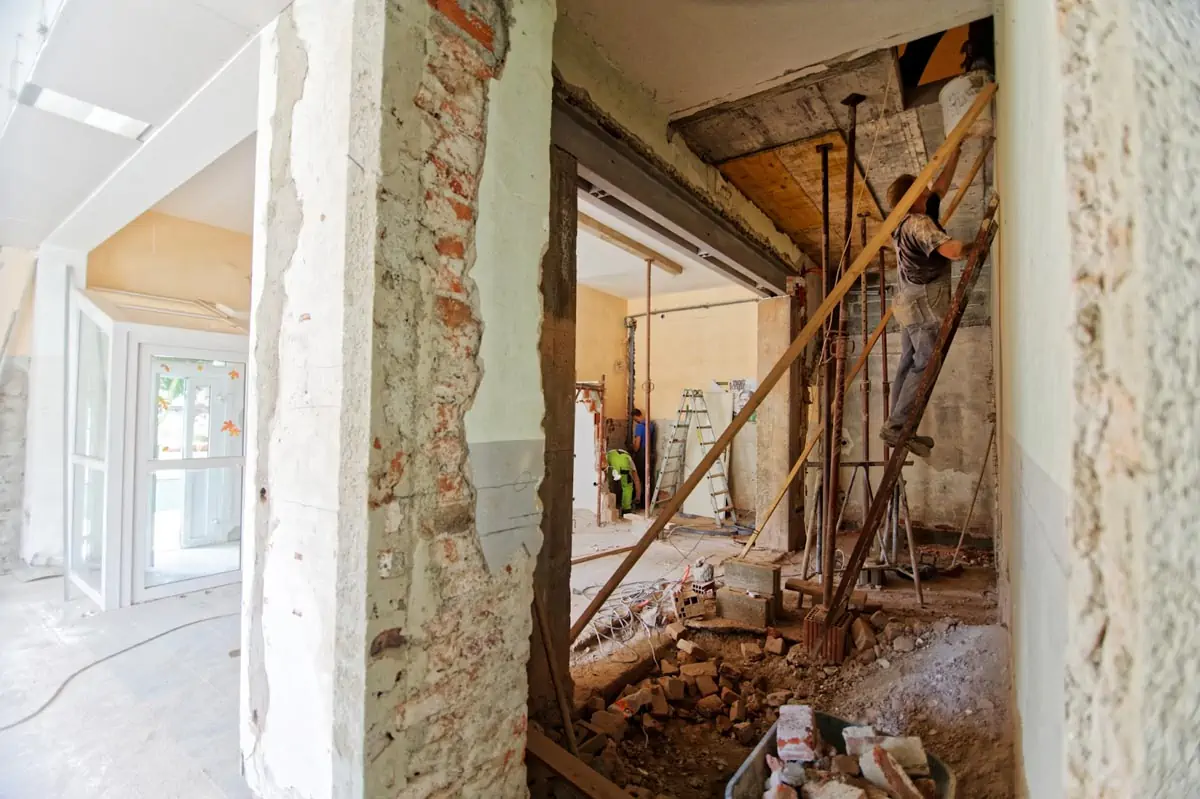 Photo courtesy of mimithecook via Unsplash
Photo courtesy of mimithecook via Unsplash
When deciding between minor cosmetic changes and major structural renovations, it's just as important to consider both the short-term impact and long-term ROI. A fresh coat of paint might give you a quick boost in rental income or selling price, but major renovations could provide more significant returns over time.
Furthermore, you've got to think about your target market's preferences. What do renters or buyers in your area value most? Maybe they're all about floating shelves or luxurious master suites. Remember, a lot of trendy touches die down.
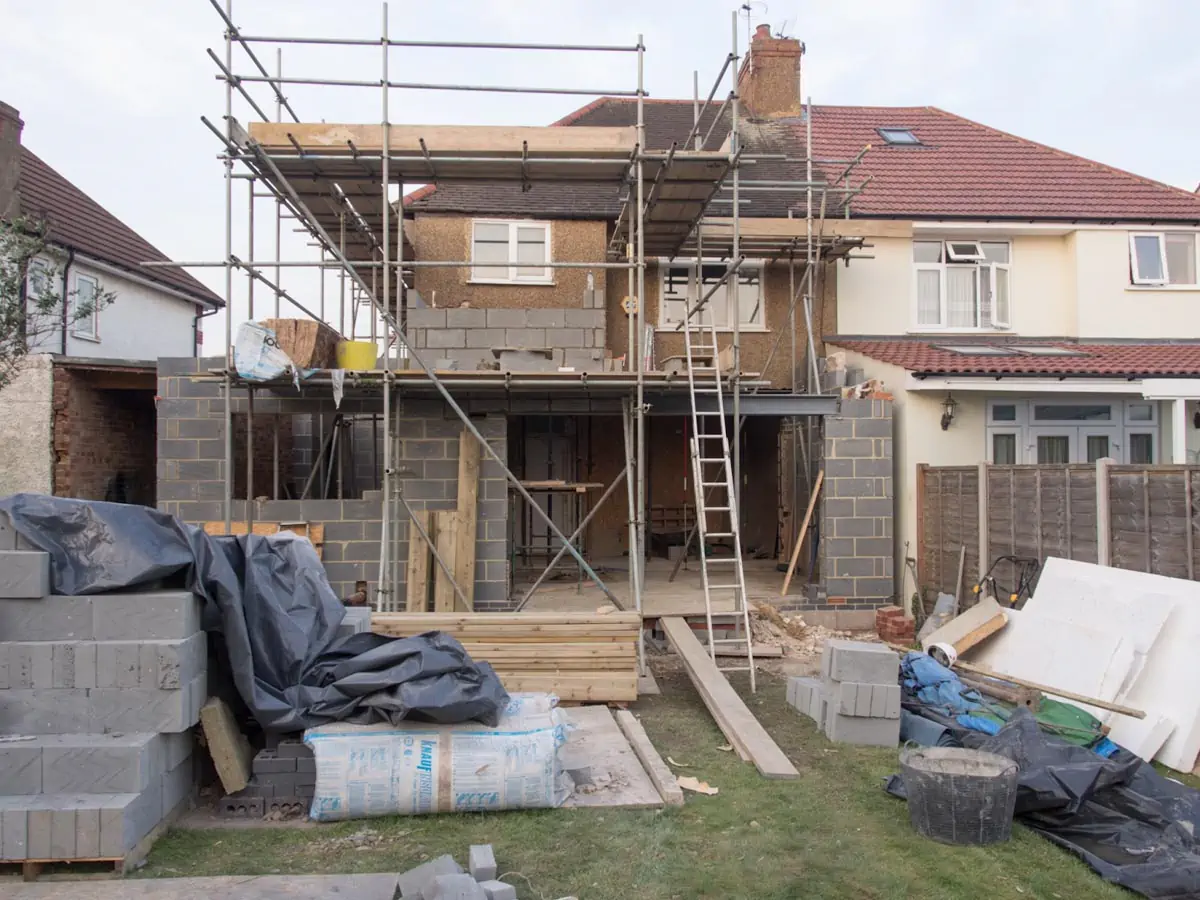 Photo courtesy of brett_jordan via Unsplash
Photo courtesy of brett_jordan via Unsplash
So when you cater to people’s needs and preferences, you can boost the appeal of your renovations. Ultimately, whether you're sprucing up with minor cosmetic changes or going all-in with major structural renovations, thoughtful planning and consideration of ROI are key to success in property investment. Here are the high-ROI improvements:
Kitchen remodeling
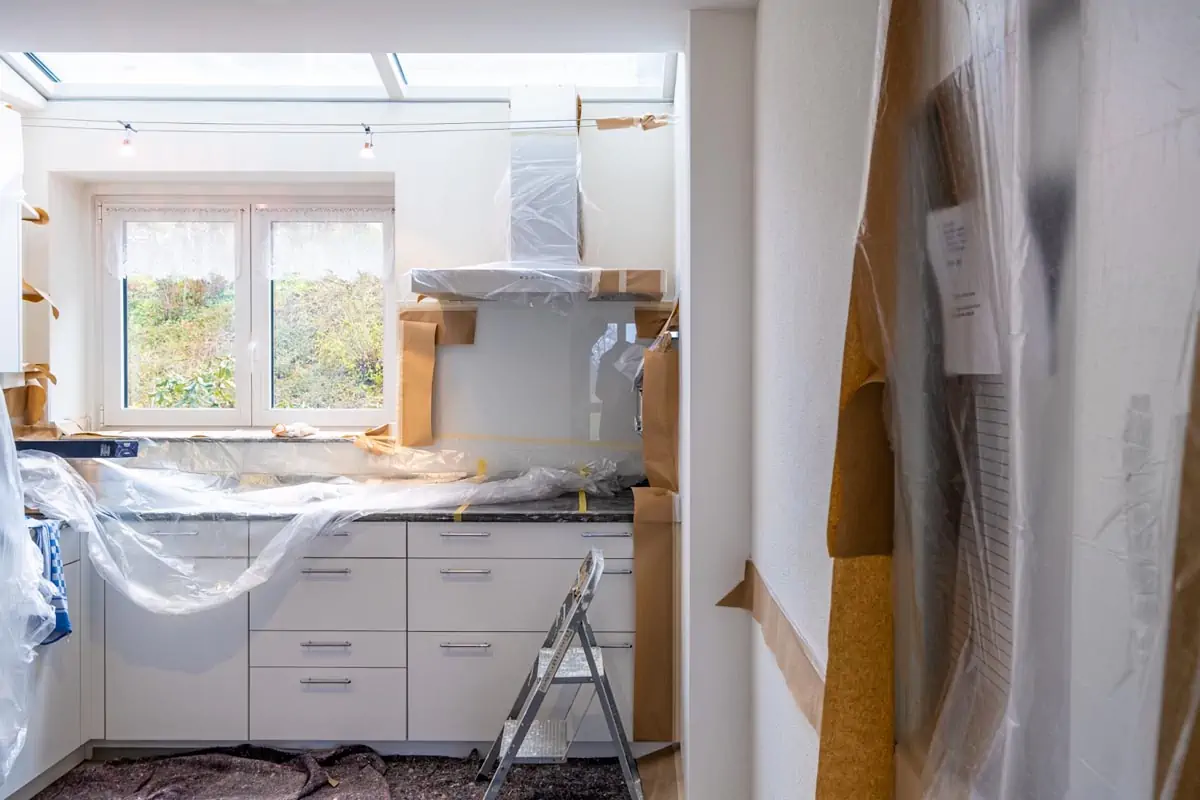 Photo courtesy of immorenovation via Unsplash
Photo courtesy of immorenovation via Unsplash
The kitchen is the heart of the home where all the magic happens. Consider stainless steel appliances, granite countertops, and sleek cabinets—materials that make cooking a joy and hosting a breeze.
Upgrading your kitchen adds major appeal and can increase your property's value by a significant chunk. Here are a few tips for keeping those kitchen renovations budget-friendly:
- Refacing cabinets instead of replacing them entirely
- Opt for durable, low-maintenance materials that are inexpensive
- Look for deals on appliances and shop around for the best prices
Bathroom upgrades
The bathroom is where we start and end our days. A stylish, inviting bathroom can make a big impression on potential buyers or renters.
Imagine clean lines, modern fixtures, and a spa-like atmosphere. Even small changes, like updating the vanity or swapping out old hardware, can make a big difference in how your bathroom looks and feels. For those looking to make a splash without draining the bank account, consider:
- Installing a new showerhead or faucet for an instant refresh
- Adding a fresh coat of paint or upgrading lighting fixtures for a brighter, more modern look
- Focus on timeless design elements to ensure your bathroom stays stylish for years to come.
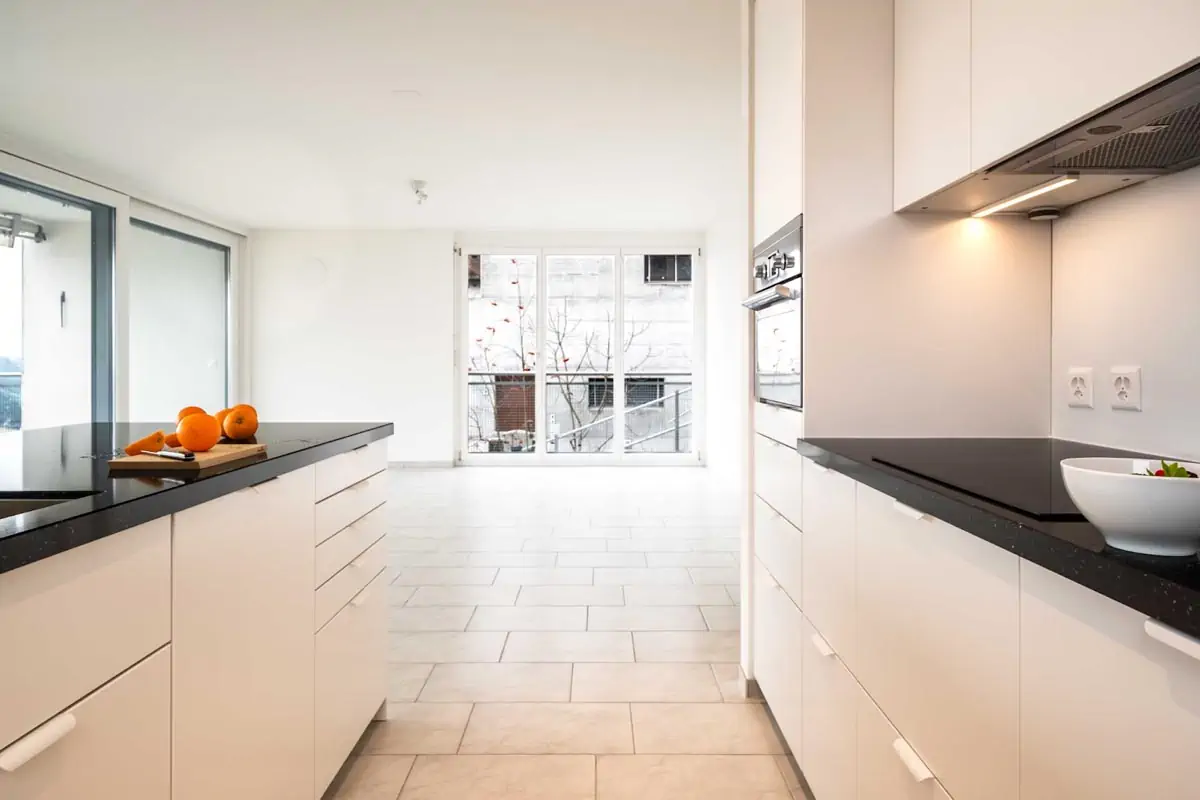 Photo courtesy of immorenovation via Unsplash
Photo courtesy of immorenovation via Unsplash
Energy efficiency
Going green isn't just good for the planet—it's also great for your bottom line. Investing in energy-efficient features like insulation, double-pane windows, and high-efficiency appliances can save you big bucks on utility bills while attracting eco-conscious buyers or renters.
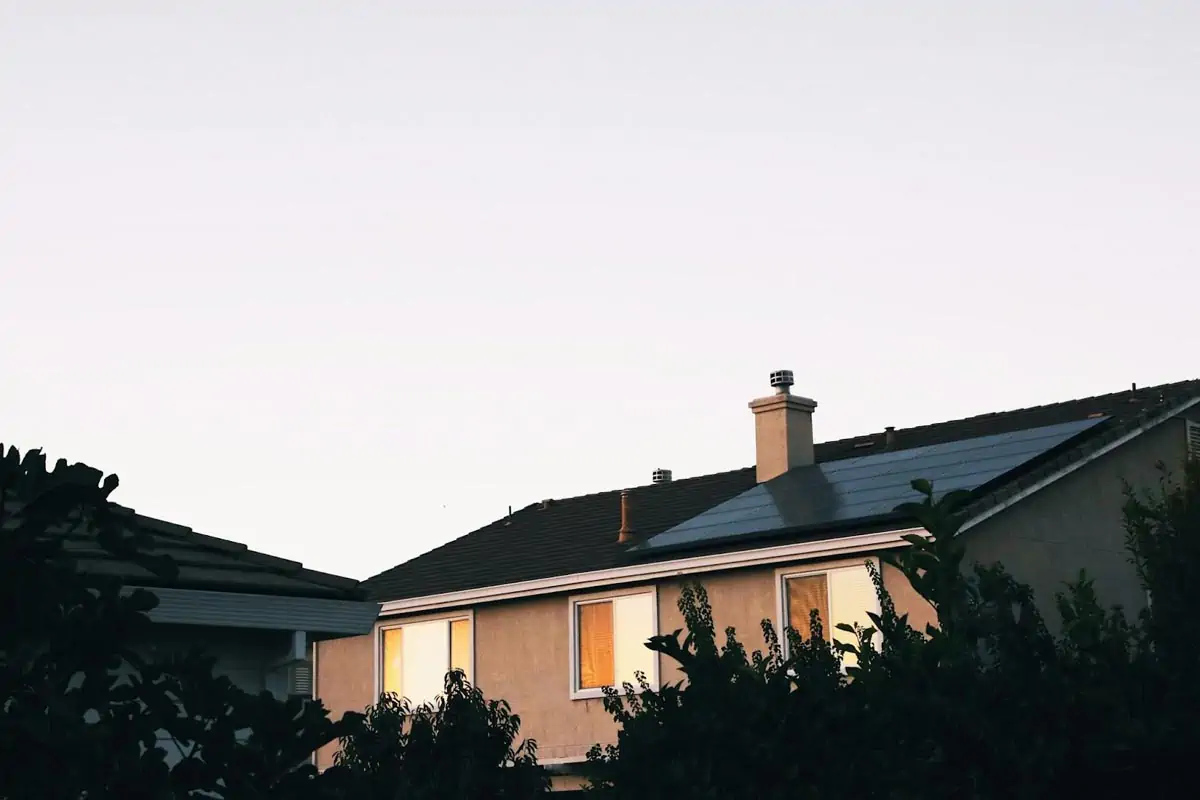 Photo courtesy of giorgiotrovato via Unsplash
Photo courtesy of giorgiotrovato via Unsplash
Here's how ‘green’ improvements can pay off:
- Look for energy-efficient appliances with the ENERGY STAR label—they use less energy and can save you money in the long run
- Consider adding solar panels or a tankless water heater to further reduce your property's carbon footprint
- Highlight your property's eco-friendly features in marketing materials to appeal to environmentally-conscious renters or buyers
Space optimization
When it comes to property value, space is king. Maximizing every square inch of your property can make it more attractive to potential buyers or renters and increase its value in the process.
 Photo courtesy of slavasfotos via Unsplash
Photo courtesy of slavasfotos via Unsplash
Whether you're converting a spare room into a home office or transforming an unused attic into a cozy bedroom, smart design choices can make a big difference. Here's how to make the most of your space:
- Get creative with storage solutions to minimize clutter and maximize usability
- Consider open-concept layouts to make smaller spaces feel larger and more inviting
- Think outside the box when it comes to room usage—unused spaces like basements or attics can be transformed into valuable living areas with a little imagination
It's all about being informed and getting creative with your approach. With the right information and a bit of DIY spirit, you can make significant upgrades to your property without spending a fortune. It's all about educating yourself, doing your research, and getting creative with your approach to property improvements.
Strategic renovation planning and avoiding overinvestment
Ever heard of "gilding the lily"? It's when you go overboard with upgrades and renovations, thinking that more is always better. But just because you can install heated floors in every room doesn't mean you should.
Overloading your property with extravagant features can drive up costs without necessarily increasing its market value. Sometimes, you can have too much of a good thing. Overinvestment happens when you pour more money into renovations than the market value of the property can support. Here’s how it can sneak up on you:
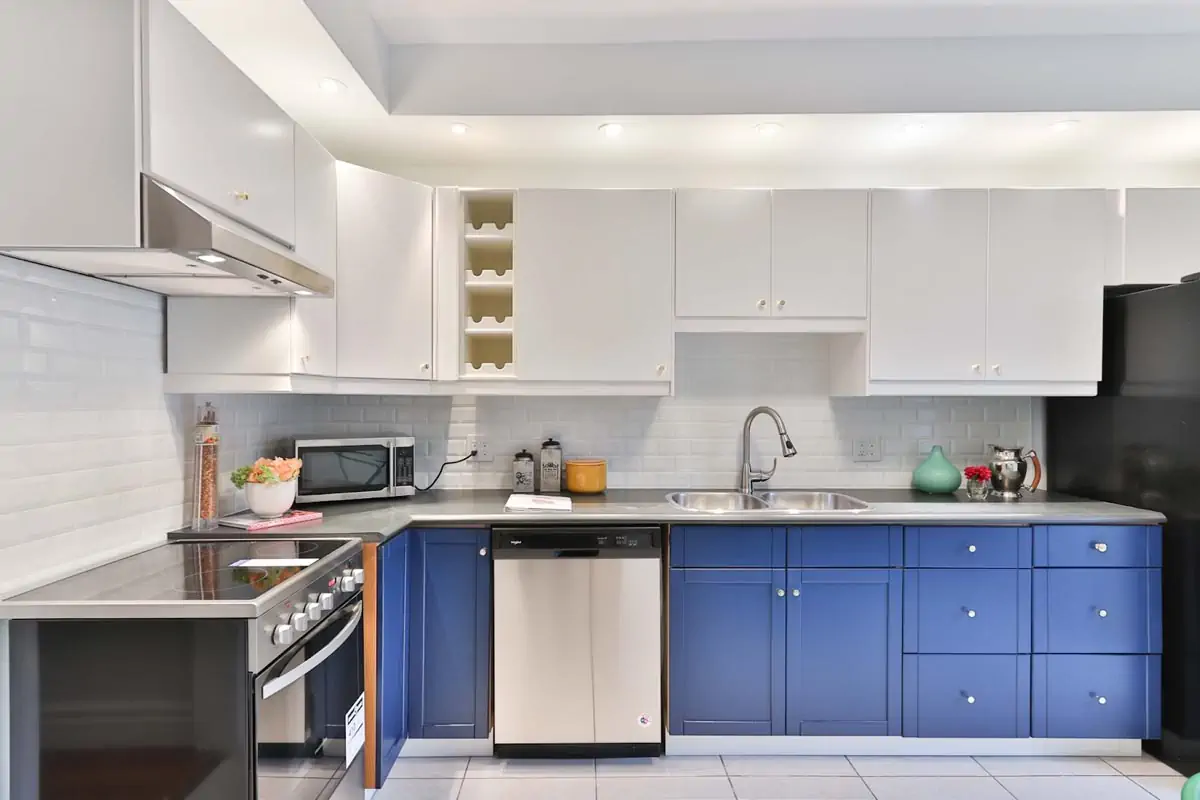 Photo courtesy of lotusdnp via Unsplash
Photo courtesy of lotusdnp via Unsplash
Over-customization
You've got a property with a funky, avant-garde design scheme straight out of a modern art gallery. It's cool, it's edgy, but it's also a bit...niche. Over-customizing your property with ultra-specific design choices can limit its appeal to a broader audience.
Sure, there might be a handful of buyers or renters out there who love your bold aesthetic, but for the majority, it might be a bit too out there. And when your property doesn't resonate with the masses, it can take longer to sell or rent, ultimately affecting its resale value.
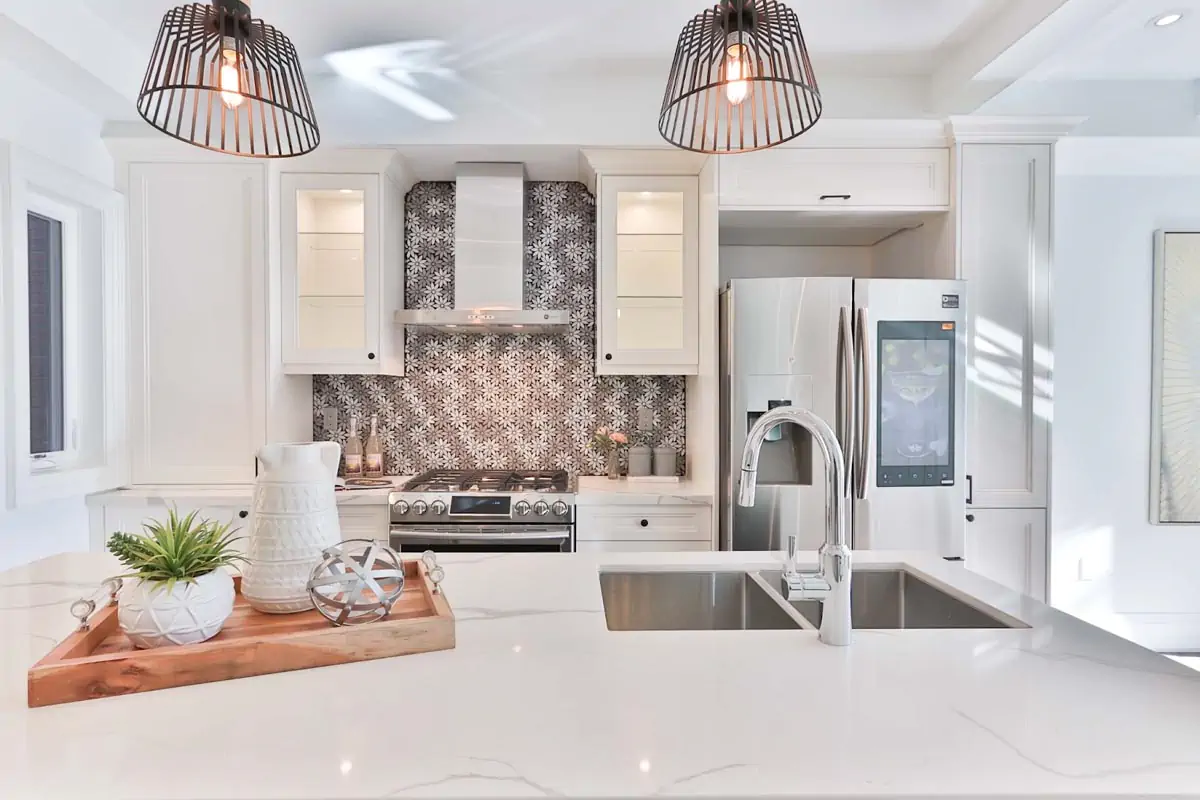 Photo courtesy of lotusdnp via Unsplash
Photo courtesy of lotusdnp via Unsplash
Using high-end materials in a lower-priced market
Imagine decking out your property with top-of-the-line, luxury materials—marble countertops, imported hardwood floors, the works. It might look fancy, but it's not necessarily going to fetch a premium price in a market where buyers or renters aren't willing to pay extra for those bells. While high-end materials might add luxury and style, they can also inflate your renovation costs without necessarily increasing your property's value in the market.
Misaligned renovations
Imagine pouring time and money into renovating your property, only to realize that your upgrades don't align with what potential buyers or renters are looking for.
Renovating in a way that doesn't align with the needs and preferences of potential buyers or renters can result in wasted time and money. For example, installing a state-of-the-art home theater in a neighborhood where families prefer outdoor living spaces might not yield the expected ROI.
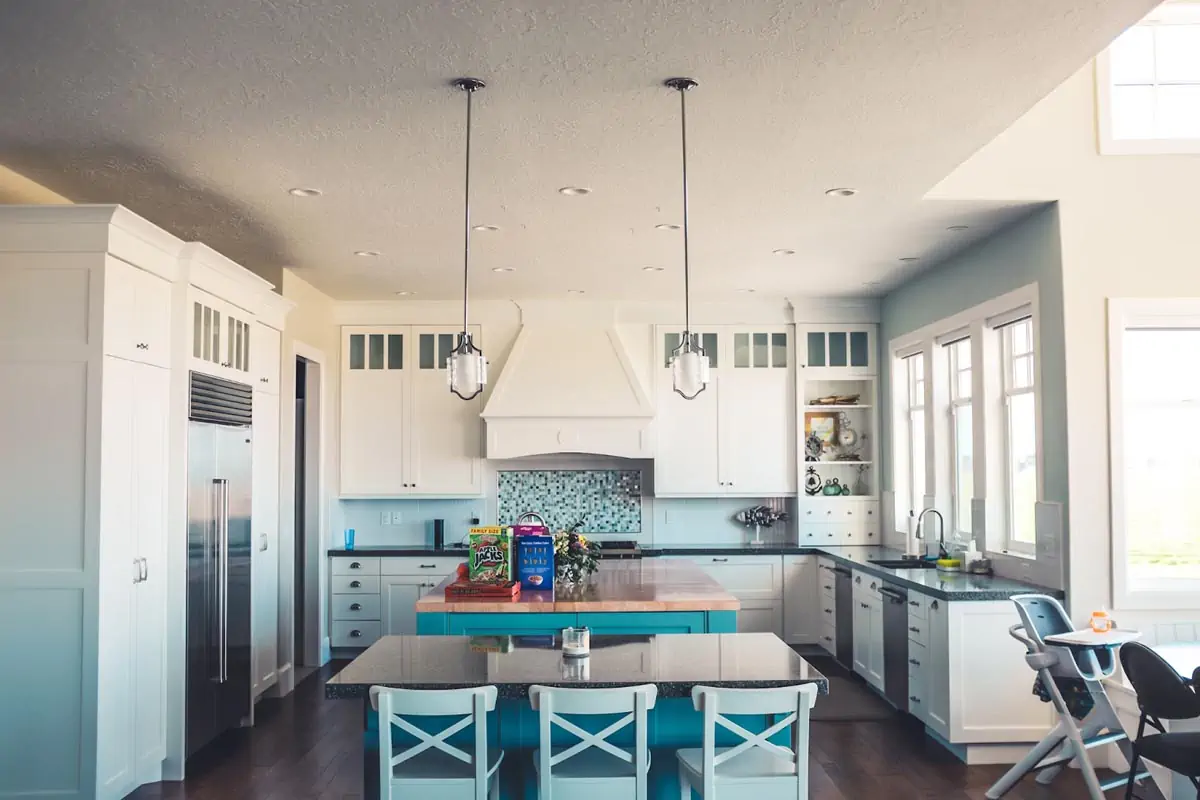 Photo courtesy of neonbrand via Unsplash
Photo courtesy of neonbrand via Unsplash
Overlooking neighborhood trends
Trends in the real estate market can change faster than a TikTok video goes viral. Ignoring current neighborhood trends or failing to anticipate future developments can leave your property renovations feeling outdated or out of sync with market demand.
To steer clear of overinvestment, it's essential to keep your renovations in check and align them with your property's market potential. Here's how:
Conduct market research
Gather intel on local market trends, buyer preferences, and property values, and you can even Google, “How much does renovation cost in the Philippines?” Understanding what sells in your area—sleek modern kitchens, cozy outdoor living spaces, or energy-efficient upgrades—can help guide your renovation decisions and maximize ROI.
 Photo courtesy of microsoftedge via Unsplash
Photo courtesy of microsoftedge via Unsplash
Consult with real estate professionals
Consult with professionals such as contractors, architects, or real estate developers in the Philippines to get their input and expertise. Professionals like DMCI's real estate agents can provide valuable insights into market conditions and buyer expectations. Don't be afraid to ask questions, seek advice, and leverage their knowledge to make informed decisions.
Focus on value-adding renovations
Stick to upgrades that are likely to add value without significantly surpassing the market value of your property. Instead of splurging on extravagant upgrades that may not yield a proportional return, think of practical improvements like kitchen and bathroom refurbishing.
 Photo courtesy of microsoft365 via Unsplash
Photo courtesy of microsoft365 via Unsplash
Set a realistic budget and timeline
Renovations can be disruptive, especially if they drag on longer than expected. Avoid biting off more than you can chew and aim for renovations that offer the best bang for your buck, so you can ensure that your renovation journey stays on track. A well-planned budget and timeline will help you reach your renovation destination with ease.
Renovations are a bit more complex than just browsing through Pinterest and calling it a day. It often requires going through a lot of paperwork like regulations, permits, and building codes. Therefore, it should be viewed as long-term investments in your property's value, not just short-term fixes and superficial changes.
 Photo courtesy of homajob via Unsplash
Photo courtesy of homajob via Unsplash
Key takeaways
With careful planning for your renovation project, it could really hit the jackpot and boost the value and charm of your investment property for the long haul. Here are some key takeaways from this guide:
- Tap into your property's potential. Take a good look at your investment property and see its prospects. Is it in a great location? Does it have unique features? By recognizing what makes it special, you can make renovation decisions that truly enhance its value.
- Renovate with a purpose. Don't just dive into renovations freestyling. Be strategic about where you invest your money. Focus on upgrades that will give you your money’s worth and align with the needs of your potential renters or buyers.
- Plan, plan, plan. Renovations aren't something you want to just wing it. Take the time to plan carefully, set realistic timelines, and stick to your budget. Get advice from professionals, do your research, and make sure your renovations are hitting the mark.
If you're interested in discussing renovation plans with experts from DMCI Homes, kindly contact us so we can assist you better. Stay up-to-date on DMCI Homes Leasing condo options through our social media accounts: Facebook, Twitter, Instagram, and YouTube.










